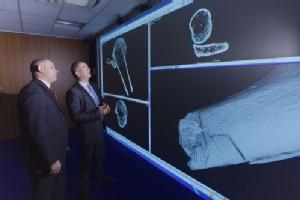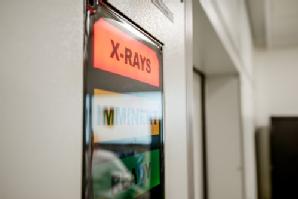Forensic Centre for Digital Scanning and 3D printing
Underpinned by the principles of Metrology (the science of measurement), our Forensic Centre has the expertise and facilities to support both research and casework.
Scanning in the lab or in the field...
Micro computed tomography (micro-CT) and a variety of laser scanners are available to scan items in our lab environment or in the field. In the field, this may be items in situ, or the scene itself.
High definition...
Our 3D scanning techniques can provide image resolutions 1000 times more detailed than a hospital CT scan. Additionally, unlike other traditional analysis techniques, the scanning is non-contact, and therefore a minimally destructive technique which can produce high-definition 3D scans whilst limiting the damage caused to the evidence.
Virtual and physical models for the court room...
Scan data can be digitally inspected and used to produce virtual models of evidence. These models or animations can be presented in court to illustrate expert testimony. A range of 3D printers are available that, depending on the material properties desired, can create physical models of the evidence for demonstrative purposes.
Developing policy...
The Centre has also played a key part in the development of five Standard Operating Procedures on the handling and transportation of specimens for forensic micro-CT scanning, which have been adopted by Home Office Pathologists and embedded in ongoing training at the College of Policing.
To support our casework, our research covers a number of key themes...
- Development of novel scanning techniques
- Development of high resolution scan data to support pathologists' examination
- Visualisation and digital prototyping, for example to support evidence presentation in court
- Developing baseline datasets of normal anatomical variants and common types of injuries
-- Our recent cases --
-- Contact us --
forensics@warwick.ac.uk

